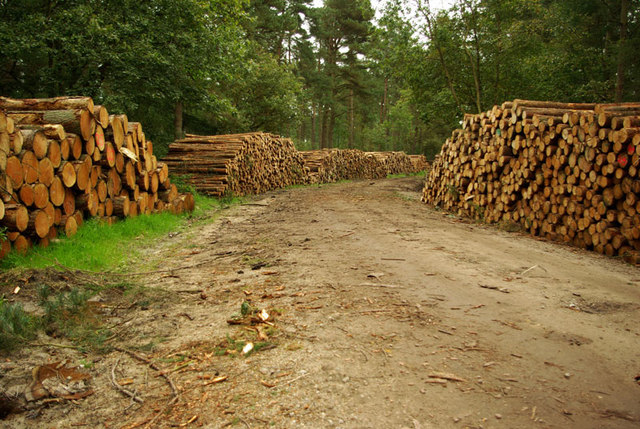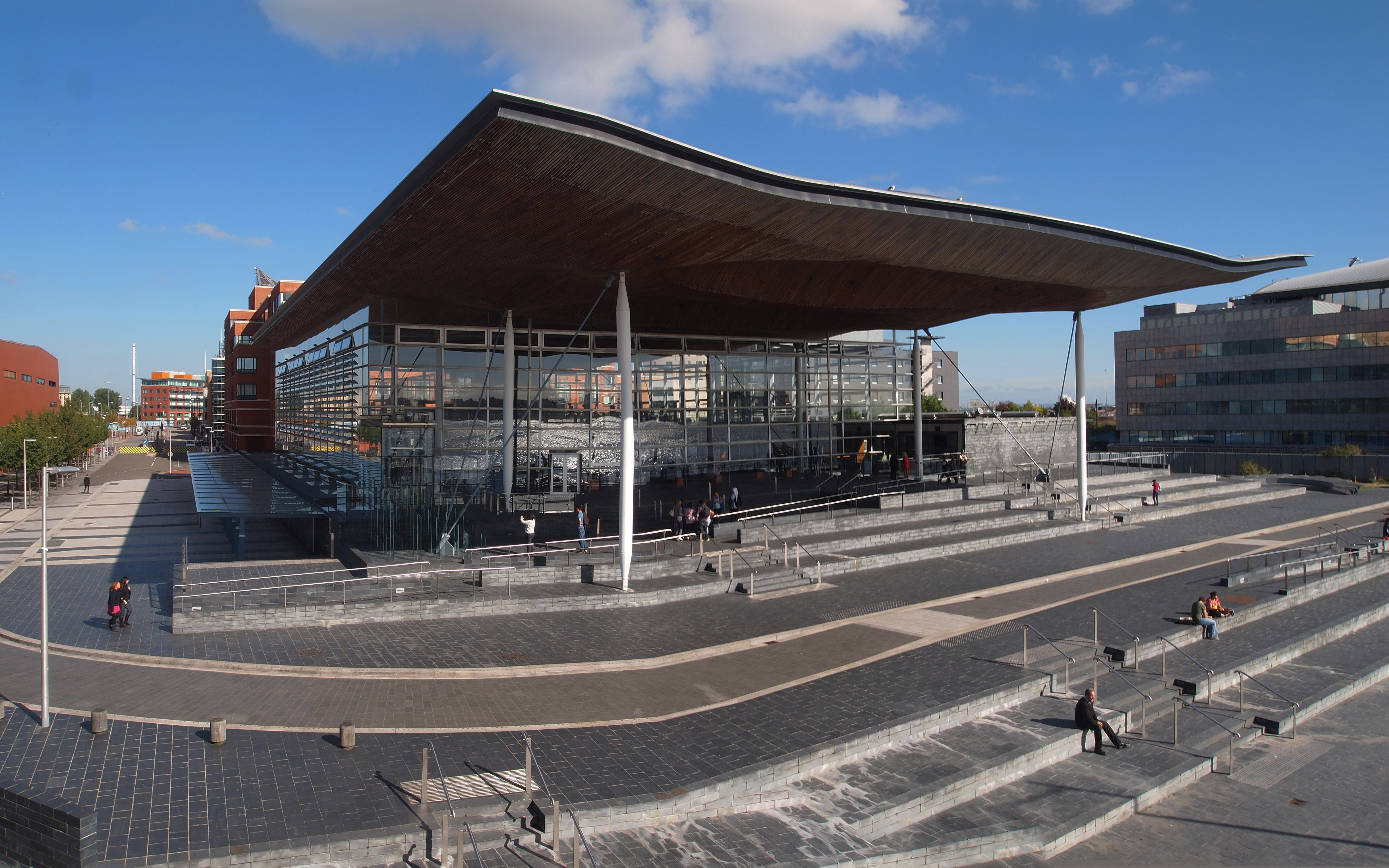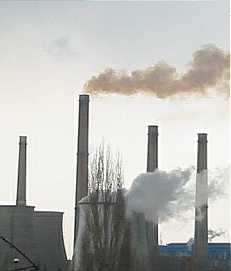|
Environmental Quality
"Environmental Quality" is a set of properties and characteristics of the environment, either generalized or local, as they impinge on human beings and other organisms. It is a measure of the condition of an environment relative to the requirements of one or more species, any human need or purpose. Environmental quality includes the natural environment as well as the built environment, such as air, water purity or pollution, noise and the potential effects which such characteristics may have on physical and mental health. United States In the United States, the term is applied with a body of federal and state standards and regulations that are monitored by regulatory agencies. All states in the U.S. have some form of a department or commission that is responsible for a variety of activities such as monitoring quality, responding to citizen complaints, and enforcing environmental regulations. The agency with the lead implementation responsibility for most major federal environmen ... [...More Info...] [...Related Items...] OR: [Wikipedia] [Google] [Baidu] |
Natural Environment
The natural environment or natural world encompasses all living and non-living things occurring naturally, meaning in this case not artificial. The term is most often applied to the Earth or some parts of Earth. This environment encompasses the interaction of all living species, climate, weather and natural resources that affect human survival and economic activity. The concept of the ''natural environment'' can be distinguished as components: * Complete ecological units that function as natural systems without massive civilized human intervention, including all vegetation, microorganisms, soil, rocks, atmosphere, and natural phenomena that occur within their boundaries and their nature. * Universal natural resources and physical phenomena that lack clear-cut boundaries, such as air, water, and climate, as well as energy, radiation, electric charge, and magnetism, not originating from civilized human actions. In contrast to the natural environment is the built envir ... [...More Info...] [...Related Items...] OR: [Wikipedia] [Google] [Baidu] |
Department For Environment, Food And Rural Affairs
The Department for Environment, Food and Rural Affairs (Defra) is a department of His Majesty's Government responsible for environmental protection, food production and standards, agriculture, fisheries and rural communities in the United Kingdom. Concordats set out agreed frameworks for co operation, between it and the Scottish Government, Welsh Government and Northern Ireland Executive, which have devolved responsibilities for these matters in their respective nations. Defra also leads for the United Kingdom on agricultural, fisheries and environmental matters in international negotiations on sustainable development and climate change, although a new Department of Energy and Climate Change was created on 3 October 2008 to take over the last responsibility; later transferred to the Department for Business, Energy and Industrial Strategy following Theresa May's appointment as Prime Minister in July 2016. Creation The department was formed in June 2001, under the leader ... [...More Info...] [...Related Items...] OR: [Wikipedia] [Google] [Baidu] |
Environmental Impact Assessment
Environmental Impact assessment (EIA) is the assessment of the environmental consequences of a plan, policy, program, or actual projects prior to the decision to move forward with the proposed action. In this context, the term "environmental impact assessment" is usually used when applied to actual projects by individuals or companies and the term " strategic environmental assessment" (SEA) applies to policies, plans and programmes most often proposed by organs of state. It is a tool of environmental management forming a part of project approval and decision-making. Environmental assessments may be governed by rules of administrative procedure regarding public participation and documentation of decision making, and may be subject to judicial review. The purpose of the assessment is to ensure that decision makers consider the environmental impacts when deciding whether or not to proceed with a project. The International Association for Impact Assessment (IAIA) defines an envir ... [...More Info...] [...Related Items...] OR: [Wikipedia] [Google] [Baidu] |
United Kingdom Climate Change Programme
The United Kingdom's Climate Change Programme was launched in November 2000 by the British government in response to its commitment agreed at the 1992 United Nations Conference on Environment and Development (UNCED). The 2000 programme was updated in March 2006 following a review launched in September 2004. In 2008, the UK was the world's 9th greatest producer of man-made carbon emissions, producing around 1.8% of the global total generated from fossil fuels. Aim and progress The aims of the programme are not only to cut all greenhouse gas emissions by the agreed 12.5% from 1990 levels in the period 2008 to 2012 (the international Kyoto commitment), but to go beyond this by cutting carbon dioxide emissions by 20% from 1990 levels by 2010. When the original programme was published in 2000, it confirmed that UK emissions were already forecast to be around 15% lower by 2010. As of March 2006, government projections were in line with the official energy policy of the United Kin ... [...More Info...] [...Related Items...] OR: [Wikipedia] [Google] [Baidu] |
Natural England
Natural England is a non-departmental public body in the United Kingdom sponsored by the Department for Environment, Food and Rural Affairs. It is responsible for ensuring that England's natural environment, including its land, flora and fauna, freshwater and marine environments, geology and soils, are protected and improved. It also has a responsibility to help people enjoy, understand and access the natural environment. Natural England focuses its activities and resources on four strategic outcomes: * a healthy natural environment * enjoyment of the natural environment * sustainable use of the natural environment * a secure environmental future Roles and responsibilities As a non-departmental public body (NDPB), Natural England is independent of government. However, the Secretary of State for Environment, Food & Rural Affairs has the legal power to issue guidance to Natural England on various matters, a constraint that was not placed on its predecessor NDPBs. Its powers i ... [...More Info...] [...Related Items...] OR: [Wikipedia] [Google] [Baidu] |
Forestry Commission
The Forestry Commission is a non-ministerial government department responsible for the management of publicly owned forests and the regulation of both public and private forestry in England. The Forestry Commission was previously also responsible for Forestry in Wales and Scotland. However, on 1 April 2013, Forestry Commission Wales merged with other agencies to become Natural Resources Wales, whilst two new bodies ( Forestry and Land Scotland and Scottish Forestry) were established in Scotland on 1 April 2019. The Forestry Commission was established in 1919 to expand Britain's forests and woodland, which had been severely depleted during the First World War. The Commission bought large amounts of agricultural land on behalf of the state, eventually becoming the largest manager of land in Britain. Today, the Forestry Commission is divided into three divisions: Forestry England, Forestry Commission and Forest Research. Over time the purpose of the Commission broadened to i ... [...More Info...] [...Related Items...] OR: [Wikipedia] [Google] [Baidu] |
Environment Agency
The Environment Agency (EA) is a non-departmental public body, established in 1996 and sponsored by the United Kingdom government's Department for Environment, Food and Rural Affairs, with responsibilities relating to the protection and enhancement of the environment in England (and until 2013 also Wales). Based in Bristol, the Environment Agency is responsible for flood management, regulating land and water pollution, and conservation. Roles and responsibilities Purpose The Environment Agency's stated purpose is, "to protect or enhance the environment, taken as a whole" so as to promote "the objective of achieving sustainable development" (taken from the Environment Act 1995, section 4). Protection of the environment relates to threats such as flood and pollution. The vision of the agency is of "a rich, healthy and diverse environment for present and future generations". Scope The Environment Agency's remit covers almost the whole of England, about 13 million&n ... [...More Info...] [...Related Items...] OR: [Wikipedia] [Google] [Baidu] |
British Waterways
British Waterways, often shortened to BW, was a statutory corporation wholly owned by the government of the United Kingdom. It served as the navigation authority for the majority of canals and a number of rivers and docks in England, Scotland and Wales. On 2 July 2012, all of British Waterways' assets and responsibilities in England and Wales were transferred to the newly founded charity the Canal & River Trust. In Scotland, British Waterways continues to operate as a standalone public corporation under the trading name Scottish Canals. The British Waterways Board was initially established as a result of the Transport Act 1962 and took control of the inland waterways assets of the British Transport Commission in 1963. By the final years of its existence, British Waterways was sponsored by the Department for Environment, Food and Rural Affairs (DEFRA) in England and Wales, and by the Scottish Government in Scotland. British Waterways managed and maintained of canals ... [...More Info...] [...Related Items...] OR: [Wikipedia] [Google] [Baidu] |
National Assembly For Wales
The Senedd (; ), officially known as the Welsh Parliament in English language, English and () in Welsh language, Welsh, is the Devolution in the United Kingdom, devolved, unicameral legislature of Wales. A democratically elected body, it makes laws for Wales, agrees certain taxes and scrutinises the Welsh Government. It is a bilingual institution, with both Welsh language, Welsh and English language, English being the official languages of its business. From its creation in May 1999 until May 2020, the Senedd was known as the National Assembly for Wales ( cy, Cynulliad Cenedlaethol Cymru, lang, link=no). The Senedd comprises 60 members who are known as Member of the Senedd, Members of the Senedd (), abbreviated as "MS" (). Since 2011, members are elected for a five-year term of office under an additional member system, in which 40 MSs represent smaller geographical divisions known as Senedd constituencies and electoral regions, "constituencies" and are elected by first-past-the ... [...More Info...] [...Related Items...] OR: [Wikipedia] [Google] [Baidu] |
Scottish Environment Protection Agency
The Scottish Environment Protection Agency (SEPA; gd, Buidheann Dìon Àrainneachd na h-Alba) is Scotland's environmental regulator and national flood forecasting, flood warning and strategic flood risk management authority.Environment Act (1995). (c.2), London, HMSO ccessed 29 April 2010 Its main role is to protect and improve Scotland's environment. SEPA does this by helping business and industry to understand their environmental responsibilities, enabling customers to comply with legislation and good practice and to realise the economic benefits of good environmental practice. One of the ways SEPA does this is through the [...More Info...] [...Related Items...] OR: [Wikipedia] [Google] [Baidu] |
United States Army Corps Of Engineers
, colors = , anniversaries = 16 June (Organization Day) , battles = , battles_label = Wars , website = , commander1 = Lieutenant general (United States), LTG Scott A. Spellmon , commander1_label = List of United States Army Corps of Engineers Chiefs of Engineers, Chief of Engineers and Commanding General of the U.S. Army Corps of Engineers , commander2 = Major general (United States), MG]Richard J. Heitkamp, commander2_label = Deputy Chief of Engineers and Deputy Commanding General , commander3 = Major general (United States), MGKimberly M. Colloton, commander3_label = Deputy Commanding General for Military and International Operations , commander4 = Major general (United States), MG]William H. Graham, commander4_label = Deputy Command ... [...More Info...] [...Related Items...] OR: [Wikipedia] [Google] [Baidu] |






